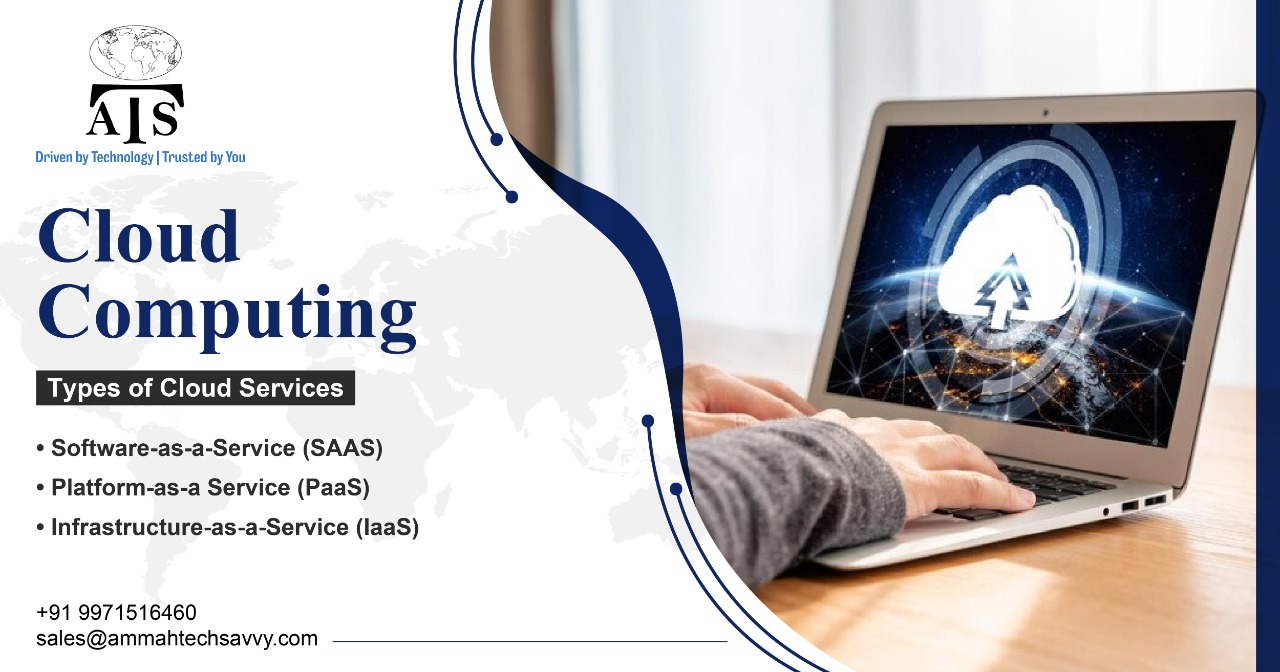Cloud Computing and its Types
Cloud computing is a term that is used so much in every aspect of digital transformation and modern technology and thus is no longer a hidden concept. One fact about cloud computing that you as a business owner should be aware of is that this technology is here to stay and is going to be a part of everyday life. Thus, it is important to be aware of this segment of technology to ensure that it is been used in a well-mannered way in your business that proves to be beneficial on the part of your customers in terms of a better customer experience. Thus, in order to do justice to the aforesaid statement in this blog, we will understand the concept of cloud computing along with its types.
The definition of cloud computing in the simplest of manners can be stated as the practice of using a network of remote servers hosted on the internet to store, manage, and process data, instead of a local server or a personal computer.
The technology of cloud computing is an on-demand availability of computer system resources, especially for the storage of data and computing power without the involvement of the user in a direct manner. Also, large clouds often own the functions spread over various locations with each location being a data centre.

Cloud Computing, The Meaning
The definition of cloud computing in the simplest of manners can be stated as the practice of using a network of remote servers hosted on the internet to store, manage, and process data, instead of a local server or a personal computer.
The technology of cloud computing is an on-demand availability of computer system resources, especially for the storage of data and computing power without the involvement of the user in a direct manner. Also, large clouds often own the functions spread over various locations with each location being a data centre.
There are numerous ways of defining the service of cloud computing but no definition is complete without the mention of the key points that include networking, data management, storage, services and devices.
Types of Cloud Services
The importance of cloud services can be understood by the fact that the industry has been witnessing growth at a rapid rate and thus has become worth a million dollars. In the next five years which is between the timeframe 2021-2026, the industry is expected to witness growth at a CAGR of 19 per cent.
The effects of cloud adoption are playing a major role in 3 wide-ranging and common models of cloud computing services which include software-as-a-service, infrastructure-as-a-service and platform-as-a-service. The computing, storage, networking, and integration capabilities of each of these services are offering that are effectively owned by the vendor is another defining cloud characteristic factor and thus is delivered as a service on an on-demand and on subscription basis to the customer.
The three categories of cloud computing can work independently of each other or in a combination and are designed to be stacked on top of one another. Let us now understand the three categories of cloud computing and what the services are going to offer to the user.
Software-as-a-Service (SAAS)
SaaS is the most commonly implemented cloud computing service for business customers and is thus commonly referred to as the “on-demand software.” SaaS is replacing or augmenting traditional enterprise systems including ERP, accounting, human resources management, content management systems, supply chain and inventory management, and customer relationship management (CRM) programs owing to its wide variety of application and service types. The users of this service can access numerous cloud applications on an as-needed basis as SaaS doesn’t require purchasing an expensive licensed program.
Platform-as-a Service (PaaS)
In simple words, PAAS can be defined as a middleman that links SaaS and IaaS. PaaS is a service that provides users with all the tools needed to create a digital platform. the groundwork for storage, networking, and virtual servers with software and hardware necessary to design, develop, test, implement, manage, and operate applications while integrating, analyzing, and sharing data include a wide range of features of this service.
Infrastructure-as-a-Service (IaaS)
The essential building blocks, database storage, and a virtual platform is been availed by the service of LaaS. With the help of this service platform, the building of cost-saving and scalable IT solutions takes place along with the outsourcing of complex and expensive hardware to a third-party cloud vendor.
The users who are able to self-provision the storage or processing power of the IaaS platforms for those the services of these IT components are automated. The ongoing maintenance, including system upkeep, backing up data, and business steadiness is the responsibility of the vendors.
Conclusion
The umbrella of services related to cloud computing is vast and helps businesses provide superior quality and an advanced range of services at a wider scale and thus enrich the experience of business doing and customer acquisition. Thus, it would be of no surprise that the stream of cloud computing witnesses growth at a faster range and is also on the verge of becoming an essential technological need for business in the near future!
FAQ:
Q.1 What is meant by cloud computing?
Ans: In the simplest of manners can be stated as the practice of using a network of remote servers hosted on the internet to store, manage, and process data, rather than a local server or a personal computer.
Q.2 Where can I find an effective cloud computing service provider for my business?
Ans: Visit, Ammah techsavvy to find an effective cloud computing service provider for my business.
